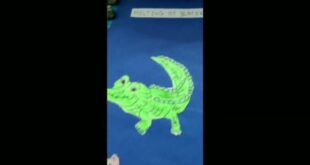[ad_1]
 Wildlife conservationists and enthusiasts around the world have been celebrating an apparent silver lining in the latest coronavirus epidemic since the Xinhua News Agency in China reported earlier this month that researchers had found a 99% genetic match between a virus found in pangolins and the new human coronavirus.
Wildlife conservationists and enthusiasts around the world have been celebrating an apparent silver lining in the latest coronavirus epidemic since the Xinhua News Agency in China reported earlier this month that researchers had found a 99% genetic match between a virus found in pangolins and the new human coronavirus.
The hope of this finding is that humans, frightened of coronavirus infection, would reduce their demand for pangolin meat and scales, whose populations are in rapid decline due to wildlife poaching and trafficking to satisfy bushmeat and traditional medicine markets predominantly in Asia.
It may, however, be premature to celebrate “the revenge of the pangolin” since the link to coronavirus may turn out not to have the positive outcome for pangolins that we’ve all been hoping for. Several interesting and worrying scenarios could still unfold.
So far coronavirus has done wonders for putting the plight of the pangolins into the headlines and onto the global stage, which is something that is long overdue and critical to their survival. It is hard to rally support for saving a species when most people don’t even know what a pangolin is let alone their critical status.
The reported link between pangolins and the coronavirus has led to the Chinese government placing a temporary ban on all wildlife markets and trade, based on the fact that these markets are ideal for the cultivation and spread of zoonotic diseases, which are transmitted between different animal species, including to humans. This has led to the closure in China of “wet markets”, where live wild animals are sold, which is obviously good news for animal rights, even if this is unlikely to have been a primary consideration of the Chinese government.
It should be noted, however, that the ban is only temporary at this stage and – should it be extended – the ban will only drive markets underground, since the demand for animal body parts, which has existed for millennia for use in Traditional Chinese Medicine, will not change overnight, regardless of the viral risks.
The negative consequence of the ban is that reducing access to wildlife parts by only selling them on the black market is likely to increase the street value of pangolins even further, not only in the end-markets in China and Vietnam, but also in Africa where the chain of the illegal wildlife trade begins. A higher street value for pangolins may then trigger even more poaching. This is applicable not only to the pangolin, but also to rhino horn, lion bone and elephant tusk.
It is important to remember that the basis of the Xinhua News Agency report is a study by researchers at the South China Agricultural University in Guangzhou, is far from conclusive. Several scientists around the world have reserved comment on the study until they receive the yet unpublished data supporting its conclusions, so that these can be verified.
While the report suggests that pangolins are “the most likely intermediate host”, other wild animals traded at wet markets could also be transmitters of the deadly coronavirus, which is thought to have originated in bats before being passed on to humans via another species.
On 3 February, the Standing Committee of the Political Bureau of the Communist Party of China held a meeting to “strengthen the prevention and control of the coronavirus epidemic” and expressed their intention to “resolutely ban and severely crack down on illegal wildlife markets and trade”, however no mention was made of pangolins being linked to the virus. Is this perhaps indicative of the government’s reluctance to jump to the conclusion that pangolins are the intermediate host? What we find perplexing about this statement is how the government intends to ban something that is already illegal, but that is perhaps a different, interesting space to watch.

There is also a real possibility that this could turn out to be an isolated Asian incident. Furthermore – and this is important to note – none the reports to date have pointed to the coronavirus being linked to any of the four African pangolin species.
If a scientifically proven link is made between coronavirus and exclusively Asian pangolin populations this may result in an increase in the demand for “uninfected” African pangolins. Currently one African pangolin is seized from the wild every five minutes, with one study even suggesting that up to 2.7 million pangolins are poached on the African continent each year. Any increase on this rate of trafficking and consumption would be catastrophic for their survival.
A scientifically proven link between coronavirus and pangolins could also present a formidable new threat to the survival of pangolin populations on the African continent if bushmeat hunters, or indeed anyone encountering a wild pangolin, turn to killing them as their potential infection with coronavirus would be seen as a threat to their health.
It is clearly too early to draw any conclusions or do more than speculate on possible outcomes for pangolins in the illegal wildlife trade resulting from the coronavirus outbreak, but either way it looks like pangolins could get the short end of the stick and will continue to hover on the edge of extinction.
Read more:
Related stories
Source link
Y Not Freakin’ Recyclable Home
 Pollution Climate Change Holocene Deforestation Population Acidification Y Not Freakin' Recyclable
Pollution Climate Change Holocene Deforestation Population Acidification Y Not Freakin' Recyclable



